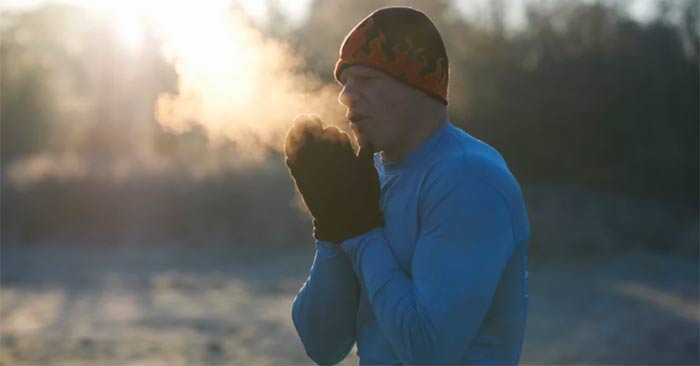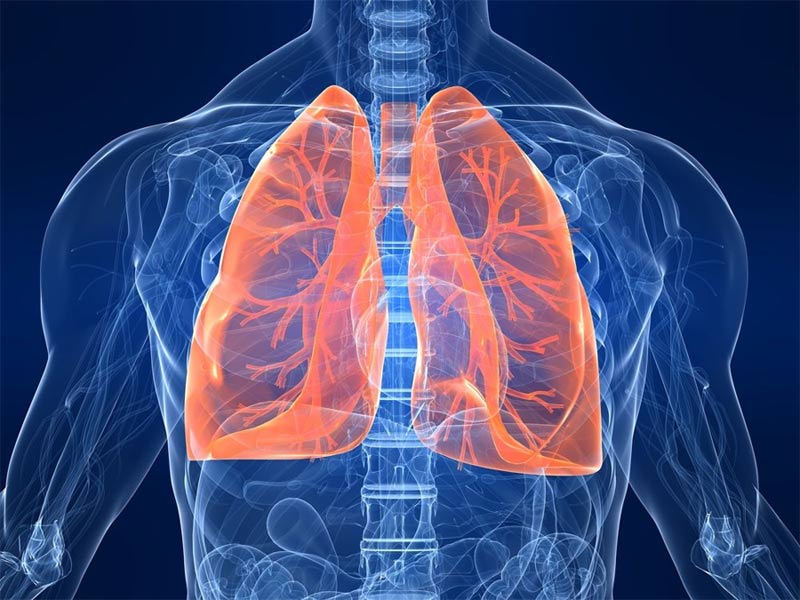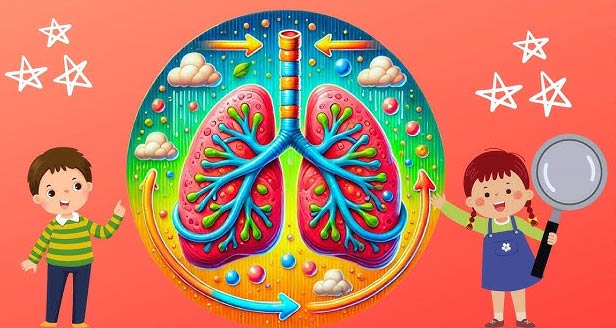Facts about lungs you may not know
Your lungs are high-performance machines and they can do more than you think. Here are some facts about your lungs that you may not know .

Every cell in your body needs oxygen to function properly. Your lungs play a key role in achieving this goal—when you breathe in, oxygen enters your bloodstream and travels throughout your body. Each cell performs an exchange, exchanging oxygen for carbon dioxide, which your blood then transports back to your lungs. When you exhale, you're actually breathing out carbon dioxide (CO2), nitrogen, and water vapor. All in all, your lungs are highly efficient machines—and they do a lot more than you think.
Breathing oxygen is just one of the important tasks of the lungs.
Yes, humans need oxygen to live, but if you don't get carbon dioxide out of your lungs, you'll die. Carbon dioxide acts as an acid in the body and is produced by muscle activity, Wendie Howland, a nurse at Howland Health Consulting in Massachusetts, told Mental Floss in 2017. " Your body functions optimally in a pretty narrow pH range, and when you create extra CO2 by, say, running up a flight of stairs, you'll bring your pH back into normal range almost immediately by excreting CO2 through deep breathing. " So exhaling more toxic CO2 is just as important as breathing in oxygen.

Bronchial tubes connect your lungs to your throat and mouth
So how does your body do this? The bronchial tubes connect your lungs to your airways and are lined with tiny hairs called cilia that move in a wave-like motion, pushing mucus up into your throat. At the base of the bronchial tubes are tiny air sacs called alveoli that hold the air you breathe. Your right lung has three balloon-like sections called lobes, filled with spongy tissue. Your left lung has just two lobes, to make room for your heart. They are located in a special membrane called the pleura, which separates your lungs from your chest wall.
Your lungs are more like buckets than balloons.
Your lungs are not big air sacs. They are more like buckets filled with blood that have air bubbles passing through them. In fact, your lungs contain as much blood as the rest of your body, which is why your center of gravity is above the waist. They also produce blood cells. Every time your heart beats, it sends the same amount of blood to your lungs as it does to the rest of your body. This amazing system breathes (i.e. exchanges gases from the air into your blood and lungs) without leaking.
very large lungs
The lungs are one of the body's largest organs, but you might be surprised to learn that if you spread out the surface area of the alveoli, the sacs where oxygen and blood meet, you could cover an entire tennis court.

Without mucus, your lungs would dry out.
You may not like mucus when it clogs your chest or nose during a cold, but it's " a powerful, underrated infection-fighting agent in your body with some pretty interesting properties ," says Ray Casciari, MD, medical director at St. Joseph's Hospital in Orange, California. " It's actually cleaner than blood. If you take bacteria and expose it to mucus, the mucus will inhibit bacterial growth, whereas blood will actually support bacterial growth ." (In fact, lab researchers often intentionally use blood to grow bacteria.) Your mucus is such an important defense that you'd die without it. " Without mucus in your lungs, you'd get dehydrated, lose so much water through evaporation that you'd die within minutes, " says Casciari. On the other hand, producing too much mucus is dangerous.
Whatever you inhale goes from your lungs to your brain.
In less than seven seconds, to be exact. Because of the lung's large surface area and "intimate relationship with surrounding blood vessels," inhaled smoke or vapor can reach the brain very quickly, says Scott Schroeder, MD, a pediatric pulmonologist at Tufts Medical Center in Massachusetts.
You should read it
- ★ Shocking experiment about damage to the lungs and throat when you smoke a pack of cigarettes
- ★ The video shows what corona virus can do to patients' lungs: Everyone, please take the flu very seriously.
- ★ Do these to keep lung cancer away from you
- ★ Did you know: Smoking a pack every day produces 150 mutations in the lungs
- ★ The basement is filled with lungs in Berlin and the telescope looks into the past